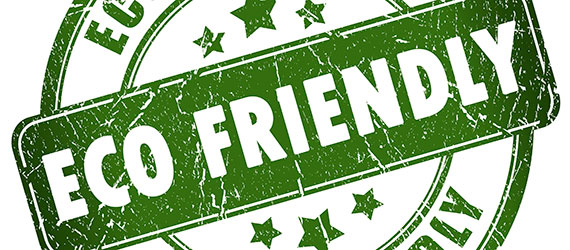Beware of misleading green claims
If more sustainable cleaning processes based on improved products, tools and equipment are to be widely adopted, they need to be promoted and their benefits communicated. There is growing concern, however, that too many ‘green’ claims are misleading or inaccurate.

In 2011, Defra extensively revised and re-issued its “Green Claims Guidance” and commented as follows:
“Good environmental claims that accurately convey the environmental attributes of products help consumers to make informed choices. Misleading, false, meaningless or unclear information can result in consumers losing confidence in environmental claims and labels in general; lead to unfair business competition; and discourage companies from making truthful claims.”
Defra’s guidance is designed to encourage good green claims, which they describe succinctly as “clear, accurate and substantiated”. They encourage companies to do this through the following three key steps. We have summarized for each step some points with particular relevance to professional cleaning:
- Step 1- Ensure the content is relevant and reflects a genuine benefit
- Be sure to consider the whole life cycle. Focus on the biggest impacts relevant to the product or process in question. If a claim relates only to minor or single impacts, make that clear.
- Ensure there is a real additional benefit. Don’t claim a benefit if it is cancelled out by higher impacts in other areas.
- Don’t base claims on absence of features or ingredients which are not generally used.
- Don’t suggest a product is exceptional by suggesting other products are more harmful if the scientific evidence does not support that.
- Ensure any comparisons with other products are fair and meaningful. Avoid implied comparisons.
- Step 2 – Present the claim clearly and accurately
- Ensure claims are presented in a truthful and accurate way that would not mislead
- Use plain language and information that is specific and unambiguous, avoid vague terms such as ‘green’, ‘environmentally friendly’, ‘eco’ etc.
- Provide clear additional explanation where required
- Use imagery which is relevant to the benefit
- Step 3 – Check the claim can be substantiated
- Hold objective evidence that supports the claim that can be fully traced and referenced
- Bear in mind the way users are likely to interpret the claim so the evidence supports that
- A claim should not be presented if the scientific evidence does not support that
Defra encourages industry bodies to develop additional ‘sector’ guidance on ‘green claims’ amplifying and extending the main guidance to deal with issues that are specially relevant and in the context of that sector.
UKCPI has drafted and discussed such additional guidance with Defra and this is close to being finalized, it will be made available here soon. This significantly extends and deepens earlier guidance on ‘Biodegradability and other Environmental Claims in the Cleaning Product Sector’.
Important points and issues covered in the Sector Guidance include:
- Consideration of the whole life cycle, and focus on important impacts, is especially important in delivering a genuine benefit in professional cleaning
- The Defra guidance stipulates that claims about ‘green’ cleaning products should not imply others are likely to cause harm if the available evidence does not support that. The Sector guidance provides links to published scientific risk assessments for various ingredients. Claims implying hazardous ingredients in other products are likely to cause harm, without specific evidence of harm, would be misleading where these risk assessments conclude there is no risk.
- The Sector Guidance provides guidance and background to explain the underlying issues, in relation to three specific issues that frequently arise in connection with cleaning products.Key points include:
- Biodegradability:
- There are legal requirements for surfactant biodegradability and claims should not be made if surfactants simply comply with those
- Guidance is provided re claims about the biodegradability of other ingredients
- Claims about anaerobic biodegradability are not advised as scientific assessment indicates this is of little significance for environmental safety
- Claims related to hazards of ingredients
- Such claims must be approached with care as hazards themselves are not ‘impacts’. If exposure is at safe levels, there will be no impact
- A claim to be ‘safer’ or ‘less harmful’ could be misleading as it implies other products are causing harm, unless that harm is specifically substantiated.
- Products using lower hazard ingredients could claim to offer improved margins of safety, provided the increased margin is significant and substantiated
- ‘Natural’ and ‘Chemical’
- Substances obtained from natural sources should not be described as ‘natural’ in a way that suggests they are not composed of the chemical elements, as are all substances, that they do not have chemical properties or that they are not the products of
(bio-)chemical reactions within natural processes - ‘Natural’ should not be used to imply products or ingredients of natural origin are safer unless that can be specifically substantiated
- Don’t use the word ‘chemical’ in a sense that is derogatory or suggests that some other substances aren’t made of the chemical elements
- Substances obtained from natural sources should not be described as ‘natural’ in a way that suggests they are not composed of the chemical elements, as are all substances, that they do not have chemical properties or that they are not the products of
- Biodegradability: